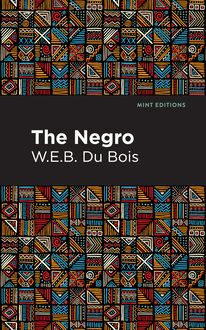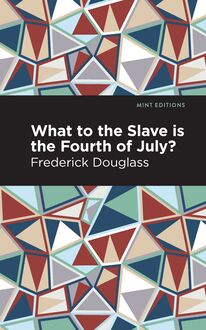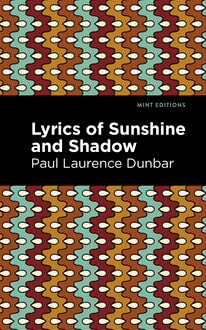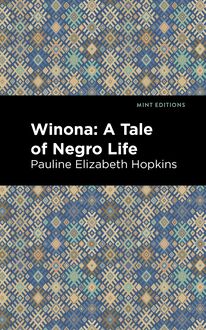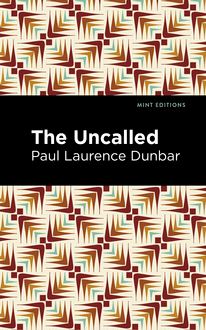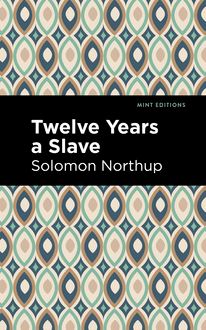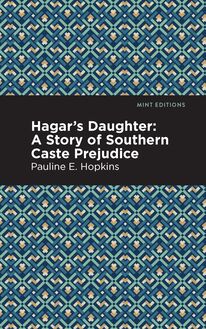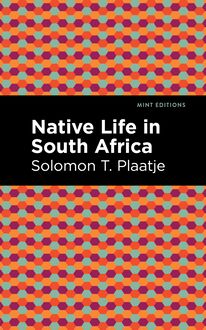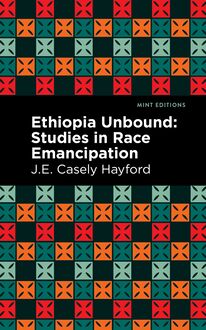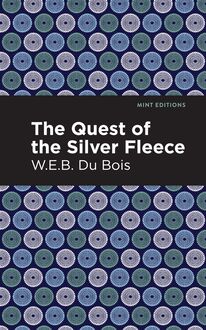-
 Univers
Univers
-
 Ebooks
Ebooks
-
 Livres audio
Livres audio
-
 Presse
Presse
-
 Podcasts
Podcasts
-
 BD
BD
-
 Documents
Documents
-
- Cours
- Révisions
- Ressources pédagogiques
- Sciences de l’éducation
- Manuels scolaires
- Langues
- Travaux de classe
- Annales de BEP
- Etudes supérieures
- Maternelle et primaire
- Fiches de lecture
- Orientation scolaire
- Méthodologie
- Corrigés de devoir
- Annales d’examens et concours
- Annales du bac
- Annales du brevet
- Rapports de stage
La lecture à portée de main
Vous pourrez modifier la taille du texte de cet ouvrage
Découvre YouScribe en t'inscrivant gratuitement
Je m'inscrisDécouvre YouScribe en t'inscrivant gratuitement
Je m'inscrisEn savoir plus
Vous pourrez modifier la taille du texte de cet ouvrage
En savoir plus

Description
Harlem Shadows (1922) is a poetry collection by Claude McKay. Published at the height of the Harlem Renaissance, Harlem Shadows earned praise from legendary poet and political activist Max Eastman for its depictions of urban life and the technical mastery of its author. As a committed leftist, McKay—who grew up in Jamaica—captures the life of Harlem from a realist’s point of view, lamenting the poverty of its African American community while celebrating their resilience and cultural achievement. In “The White City,” McKay observes New York, its “poles and spires and towers vapor-kissed” and “fortressed port through which the great ships pass.” Filled him with a hatred of the inhuman scene of industry and power, forced to “muse [his] life-long hate,” he observes the transformative quality of focused anger: “My being would be a skeleton, a shell, / If this dark Passion that fills my every mood, / And makes my heaven in the white world’s hell, / Did not forever feed me vital blood.” Rather than fall into despair, he channels his hatred into a revolutionary spirit, allowing him to stand tall within “the mighty city.” In “The Tropics in New York,” he walks past a window filled with “Bananas ripe and green, and ginger-root, / Cocoa in pods and alligator pears,” a feast of fresh tropical fruit that brings him back, however briefly, to his island home of Jamaica. Recording his nostalgic response, McKay captures his personal experience as an immigrant in America: “My eyes grew dim, and I could no more gaze; / A wave of longing through my body swept, / And, hungry for the old, familiar ways, / I turned aside and bowed my head and wept.” With a beautifully designed cover and professionally typeset manuscript, this edition of Claude McKay’s Harlem Shadows is a classic of Jamaican literature reimagined for modern readers.
Sujets
Informations
| Publié par | Mint Editions |
| Date de parution | 28 mai 2021 |
| Nombre de lectures | 0 |
| EAN13 | 9781513224060 |
| Langue | English |
Informations légales : prix de location à la page 0,0350€. Cette information est donnée uniquement à titre indicatif conformément à la législation en vigueur.
Extrait
Harlem Shadows
Claude McKay
Harlem Shadows was first published in 1922.
This edition published by Mint Editions 2021.
ISBN 9781513299341 | E-ISBN 9781513224060
Published by Mint Editions®
minteditionbooks .com
Publishing Director: Jennifer Newens
Design & Production: Rachel Lopez Metzger
Project Manager: Micaela Clark
Typesetting: Westchester Publishing Services
C ONTENTS I NTRODUCTION A UTHOR ’ S W ORD T HE E ASTER F LOWER T O O NE C OMING N ORTH A MERICA A LFONSO , D RESSING TO W AIT AT T ABLE T HE T ROPICS IN N EW Y ORK F LAME -H EART H OME T HOUGHTS O N B ROADWAY T HE B ARRIER A DOLESCENCE H OMING S WALLOWS T HE C ITY ’ S L OVE N ORTH AND S OUTH W ILD M AY T HE P LATEAU A FTER THE W INTER T HE W ILD G OAT H ARLEM S HADOWS T HE W HITE C ITY T HE S PANISH N EEDLE M Y M OTHER I N B ONDAGE D ECEMBER , 1919 H ERITAGE W HEN I H AVE P ASSED A WAY E NSLAVED I S HALL R ETURN M ORNING J OY A FRICA O N A P RIMITIVE C ANOE W INTER IN THE C OUNTRY T O W INTER S PRING IN N EW H AMPSHIRE O N THE R OAD T HE H ARLEM D ANCER D AWN IN N EW Y ORK T HE T IRED W ORKER O UTCAST I K NOW M Y S OUL B IRDS OF P REY T HE C ASTAWAYS E XHORTATION : S UMMER , 1919 T HE L YNCHING B APTISM I F W E M UST D IE S UBWAY W IND T HE N IGHT F IRE P OETRY T O A P OET A P RAYER W HEN D AWN C OMES TO THE C ITY O W ORD I L OVE T O S ING A BSENCE S UMMER M ORN IN N EW H AMPSHIRE R EST IN P EACE A R ED F LOWER C OURAGE T O O.E.A. R OMANCE F LOWER OF L OVE T HE S NOW F AIRY L A P ALOMA IN L ONDON A M EMORY OF J UNE F LIRTATION T ORMENTED P OLARITY O NE Y EAR A FTER F RENCH L EAVE J ASMINES C OMMEMORATION M EMORIAL T HIRST F UTILITY T HROUGH A GONY
I NTRODUCTION
These poems have a special interest for all the races of man because they are sung by a pure blooded Negro. They are the first significant expression of that race in poetry. We tried faithfully to give a position in our literature to Paul Laurence Dunbar. We have excessively welcomed other black poets of minor talent, seeking in their music some distinctive quality other than the fact that they wrote it. But here for the first time we find our literature vividly enriched by a voice from this most alien race among us. And it should be illuminating to observe that while these poems are characteristic of that race as we most admire it—they are gentle-simple, candid, brave and friendly, quick of laughter and of tears—yet they are still more characteristic of what is deep and universal in mankind. There is no special or exotic kind of merit in them, no quality that demands a transmutation of our own natures to perceive. Just as the sculptures and wood and ivory carvings of the vast forgotten African Empires of If é and Benin, although so wistful in their tranquility are tranquil in the possession of the qualities of all classic and great art, so these poems, the purest of them, move with a sovereignty that is never new to the lovers of the high music of human utterance.
It is the peculiarity of his experience, rather than of his nature, that makes this poet’s race a fact to be remembered in the enjoyment of his songs. The subject of all poetry is the experience of the poet, and no man of any other race in the world can touch or imagine the experience of the children of African slaves in America.
Claude McKay was born in 1890 in a little thatched house of two rooms in a beautiful valley of the hilly middle-country of Jamaica. He was born to the genial, warm, patient, neighborly farmer’s life of that island. It was a life rich in sun and sound and color and emotion, as we can see in his poems which are forever homeward yearning—in the midst of their present passion and strong will into the future, forever vividly remembering. Like a blue-bird’s note in a March wind, those sudden clear thoughts of the warm South ring out in the midst of his northern songs. They carry a thrill into the depth of our hearts. Perhaps in some sense they are thoughts of a mother. At least it seems inevitable that we should find among them those two sacred sonnets of a child’s bereavement. It seems inevitable that a wonderful poet should have had a wise and beautiful mother.
We can only distantly imagine how the happy tropic life of play and affection, became shadowed and somber for this sensitive boy as he grew, by a sense of the subjection of his people, and the memory of their bondage to an alien race. Indeed the memory of Claude McKay’s family goes back on his mother’s side beyond the days of bondage, to a time in Madagascar when they were still free, and by the grace of God still “savage.” He learned in early childhood the story of their violent abduction, and how they were freighted over the seas in ships, and sold at public auction in Jamaica. He learned another story, too, which must have kindled a fire that slept in his blood—a story of the rebellion of the members of his own family at the auction-block. A death-strike, we should call it now—for they agreed that if they were divided and sold away into different parts of the country they would all kill themselves. And this fact solemnly announced in the market by the oldest white-haired Negro among them, had such an effect upon prospective buyers that it was impossible to sell them as individuals, and so they were all taken away together to those hills at Clarendon which their descendants still cultivate. With the blood of these rebels in his veins, and their memory to stir it, we cannot wonder that Claude McKay’s earliest boyish songs in the Jamaica dialect were full of heresy and the militant love of freedom, and that his first poem of political significance should have been a rally-call to the street-car men on strike in Kingston. He found himself by an instinctive gravitation singing in the forefront of the battle for human liberty. A wider experience and a man’s comprehension of the science of history has only strengthened his voice and his resolution.
Those early songs and the music he composed for them, were very popular in Jamaica. Claude McKay was quite the literary prince of the island for a time—a kind of Robert Burns among his own people, as we can imagine, with his physical beauty, his quick sympathy, and the magnetic wayward humor of his ways. He received in 1912 the medal of the Institute of Arts and Sciences in recognition of his pre ë minence. He was the first Negro to receive this medal, and he was the first poet who ever made songs in the quaint haunting dialect of the island. But nevertheless it was not until he came to the United States that Claude McKay began to confront the deepest feelings in his heart, and realize that a delicate syllabic music could not alone express them. Here his imagination awoke, and the colored imagery that is the language of all deep passion began to appear in his poetry. Here too he conceived and felt the history and position of his people with mature poetic force. He knew that his voice belonged not only to his own moods and the general experience of humanity, but to the hopes and sorrows of his race.
A great many foolish things are said even by wise people upon the subject of racial inferiority. They seem to think that if science could establish a certain difference of average ability as between the whites and blacks, that would justify them in placing the whole of one of these races in a position of inferior esteem. The same fallacy is committed in the discussions of sex-inferiority, and it is worth-while to make clear the perfect folly of it. If any defined quantitative difference is ever established between the average abilities of such groups, it will be a relatively slight one. The difficulty of establishing it, is a proof of that. And a slight difference in the general average would have no application whatever as between any two individuals, or any minor groups of individuals. The enormous majority of both races, as of both sexes, would show the same degree of ability. And so great is the factor of individual variation that we could not even be sure an example of the highest ability might not arise in the group whose average was “inferior.” This simple consideration of fact and good logic should suffice to silence those who think they can ever appeal to science in support of a general race or sex prejudice.
But in so far as the problem arises between a dominant and a subjected race, it is impossible for science to say anything even as to averages. For a fair general test is impossible. The children of the subjected race never have a chance. To be deprived at the very dawn of selfhood of a sense of possible superiority, is to be undernourished at the point of chief educative importance. And to be assailed in early childhood with a pervading intimation of inferiority is poison in the very centers of growth. Except for people of the highest force of character, therefore, to be born into a subjected race is to grow up inferior, not only to the other race, but to one’s own potential self. We see an example of this kind of growth in the bombastic locutions of the traditional “darkie” who has acquired a little culture. Those great big words and long sentences are the result of a feeling of inferiority. They are a pathetic over-correction of the very quality of simple-heartedness which is carried so high in these poems of Claude McKay. It is carried so high, and made so boldly beautiful, that we cannot withhold a tribute to his will, as well as to his music and imagination. The naked force of character that we feel in those two recent sonnets, “Baptism” and “The White City,” is no mere verbal semblance. Its reality is certified by the very achievement of such commanding art in the face of a contemptuous or condescending civilization.
Claude McKay came to the United States in 1912, having been offered an education here by a friend in Jamaica who believed in his abilities. His intention was to learn scientific farming, and return to the island to offer practical wisdom as well as
-
 Univers
Univers
-
 Ebooks
Ebooks
-
 Livres audio
Livres audio
-
 Presse
Presse
-
 Podcasts
Podcasts
-
 BD
BD
-
 Documents
Documents
-
Jeunesse
-
Littérature
-
Ressources professionnelles
-
Santé et bien-être
-
Savoirs
-
Education
-
Loisirs et hobbies
-
Art, musique et cinéma
-
Actualité et débat de société
-
Jeunesse
-
Littérature
-
Ressources professionnelles
-
Santé et bien-être
-
Savoirs
-
Education
-
Loisirs et hobbies
-
Art, musique et cinéma
-
Actualité et débat de société
-
Actualités
-
Lifestyle
-
Presse jeunesse
-
Presse professionnelle
-
Pratique
-
Presse sportive
-
Presse internationale
-
Culture & Médias
-
Action et Aventures
-
Science-fiction et Fantasy
-
Société
-
Jeunesse
-
Littérature
-
Ressources professionnelles
-
Santé et bien-être
-
Savoirs
-
Education
-
Loisirs et hobbies
-
Art, musique et cinéma
-
Actualité et débat de société
- Cours
- Révisions
- Ressources pédagogiques
- Sciences de l’éducation
- Manuels scolaires
- Langues
- Travaux de classe
- Annales de BEP
- Etudes supérieures
- Maternelle et primaire
- Fiches de lecture
- Orientation scolaire
- Méthodologie
- Corrigés de devoir
- Annales d’examens et concours
- Annales du bac
- Annales du brevet
- Rapports de stage
